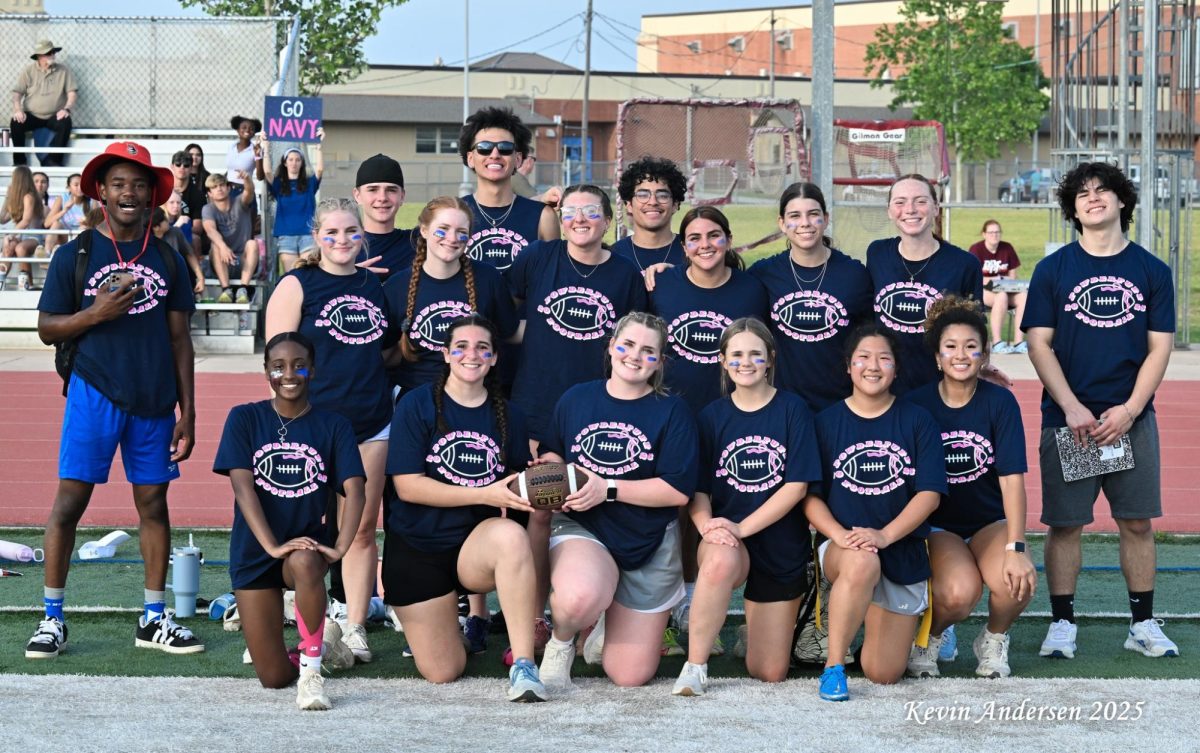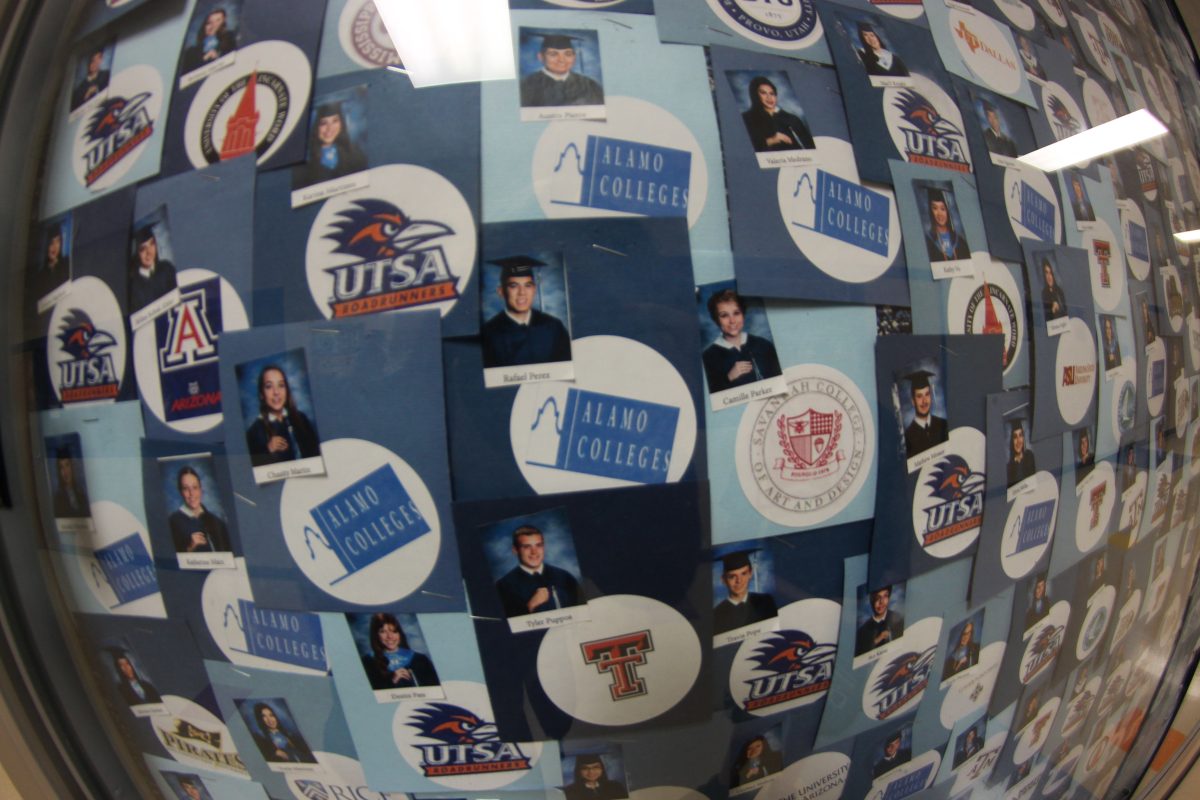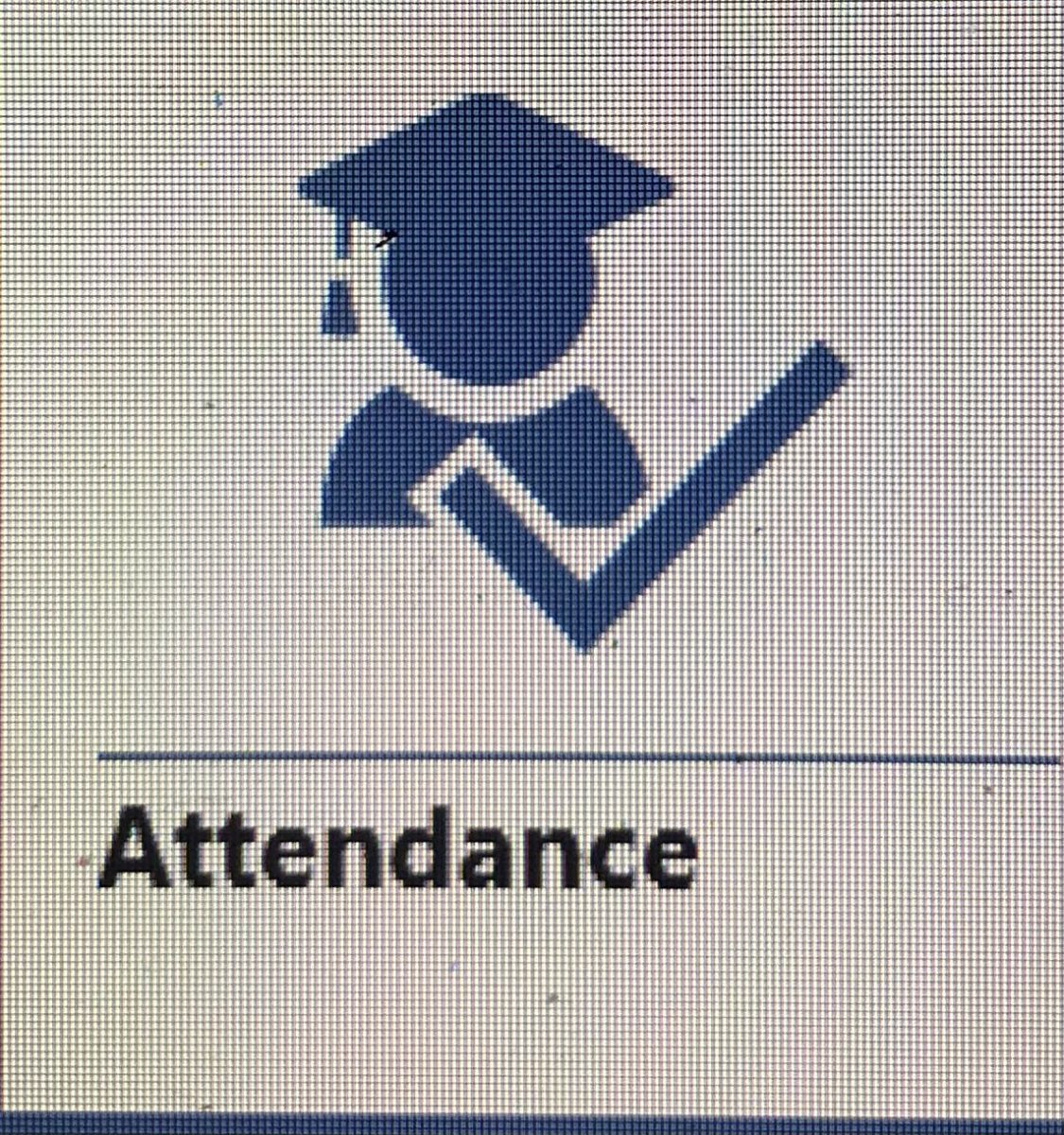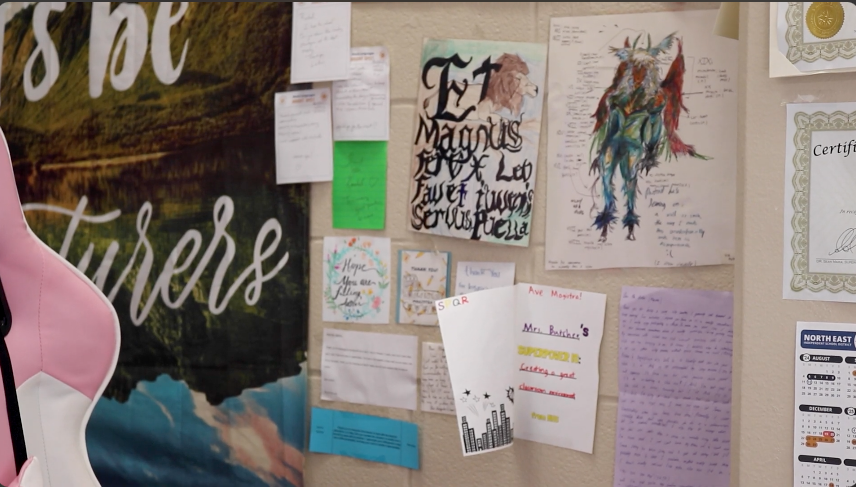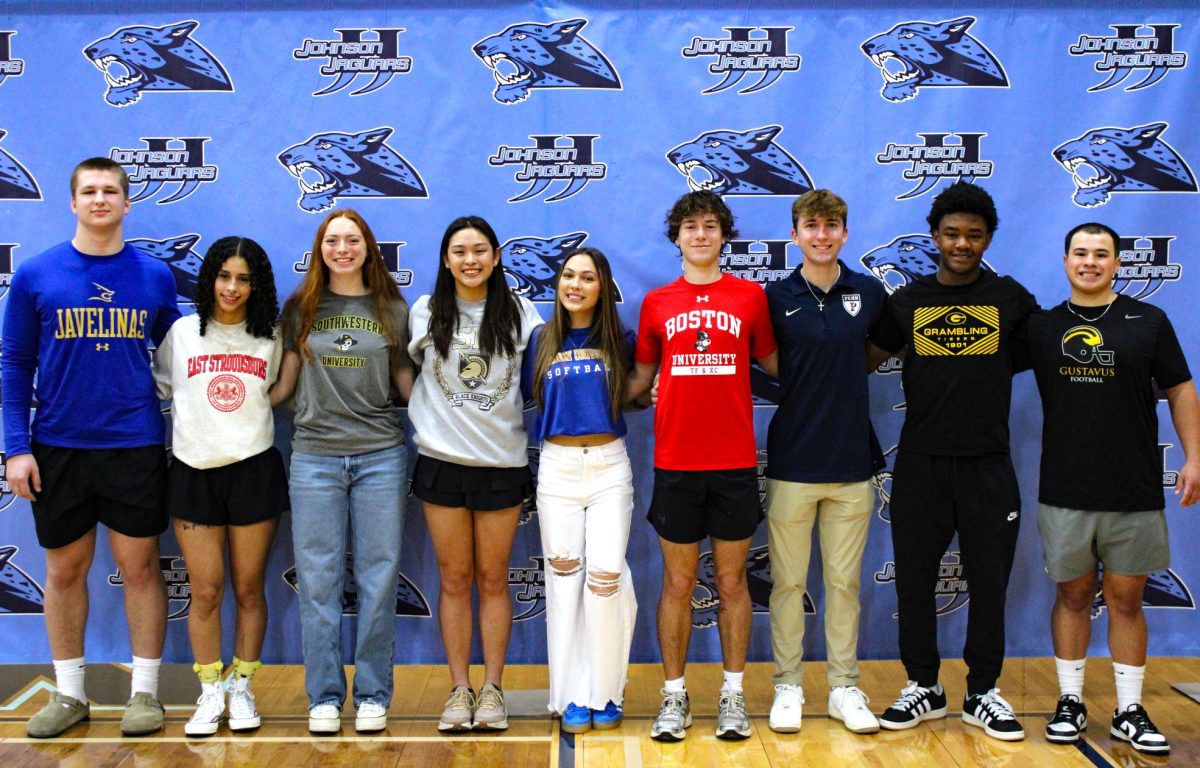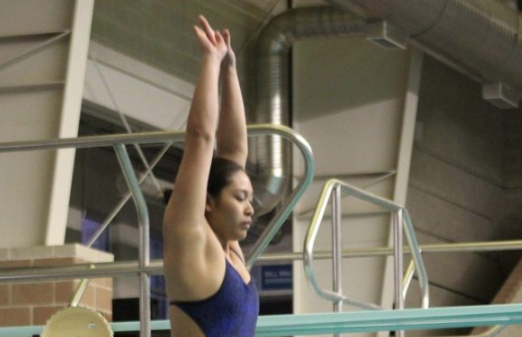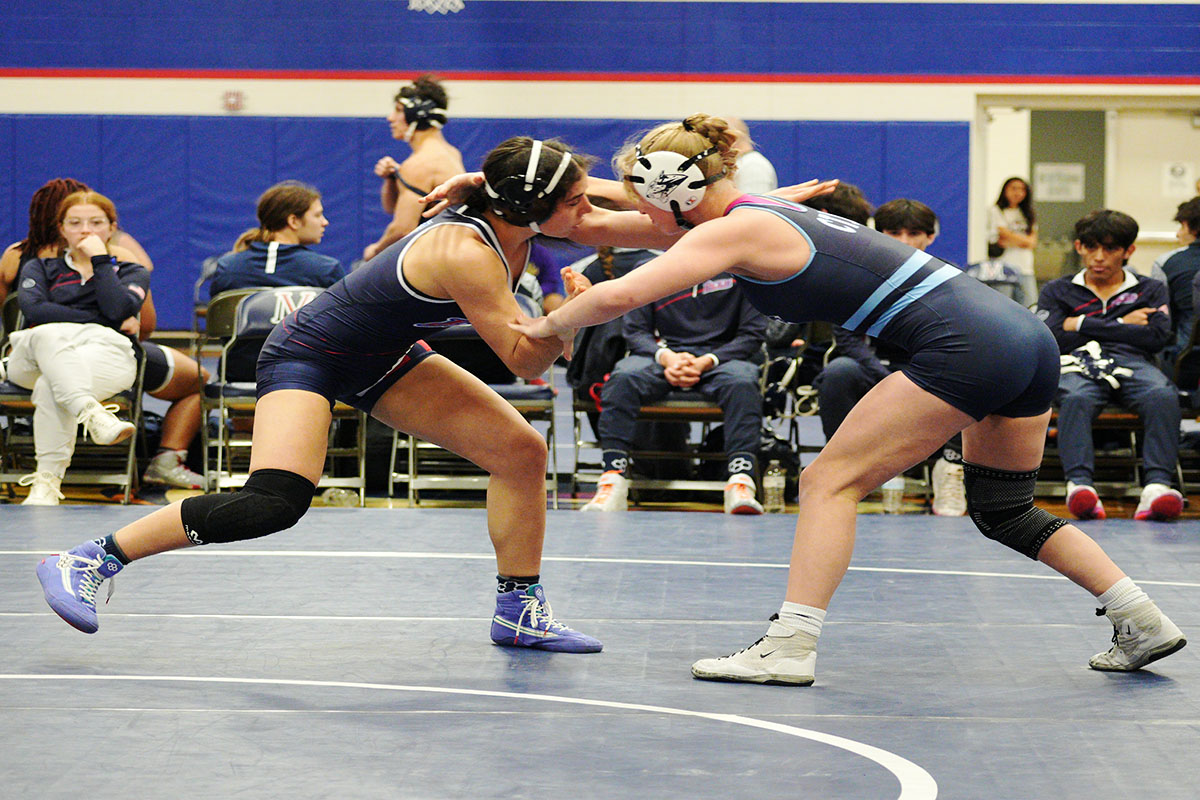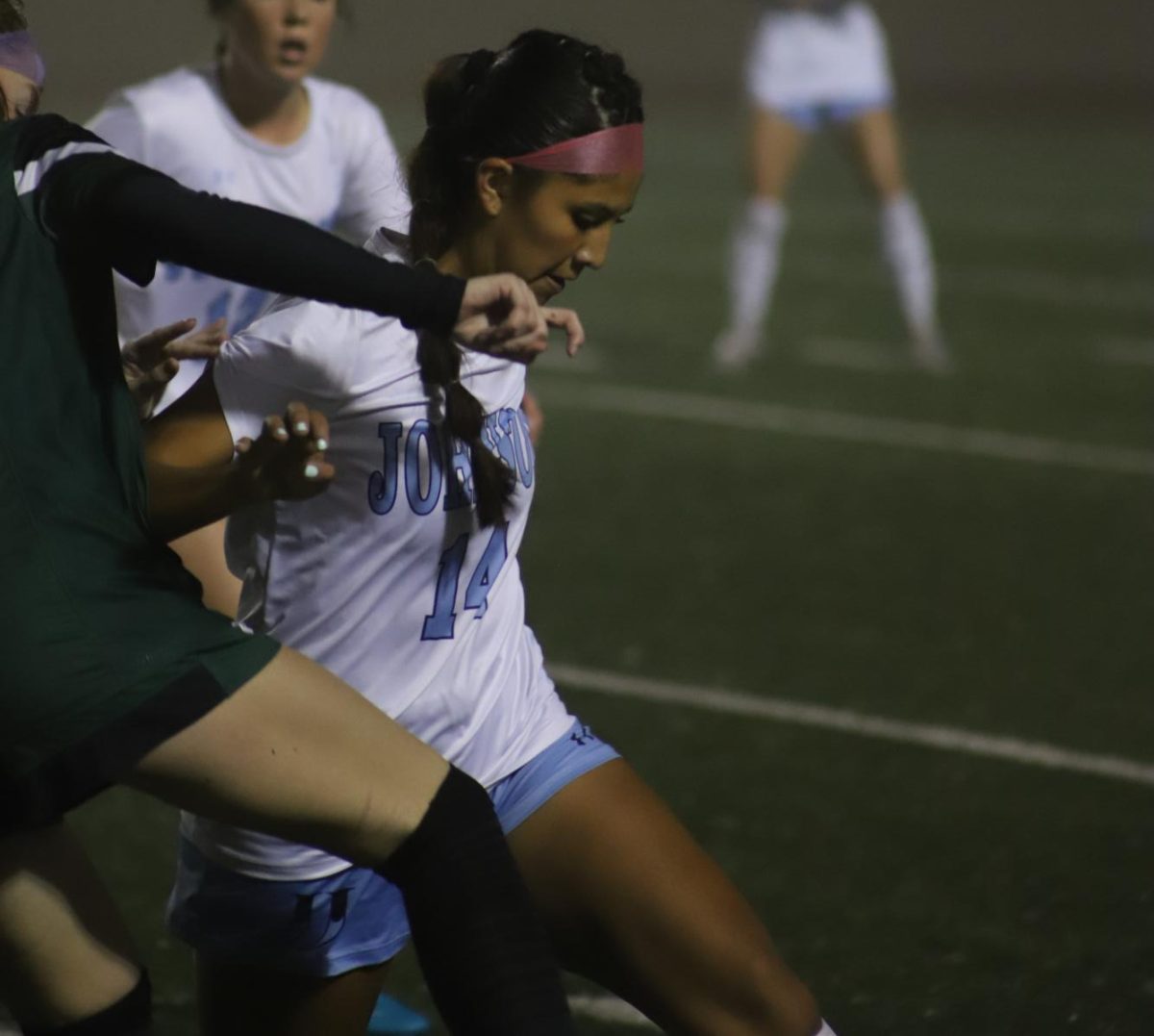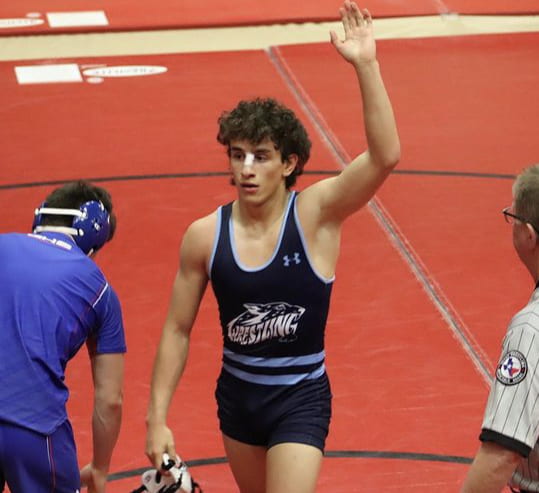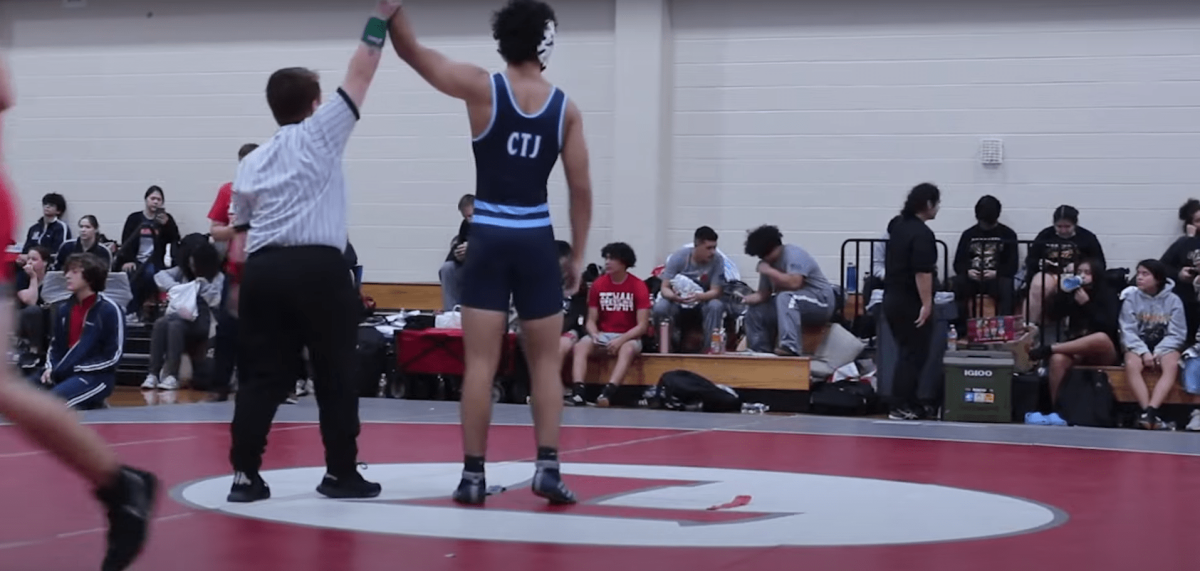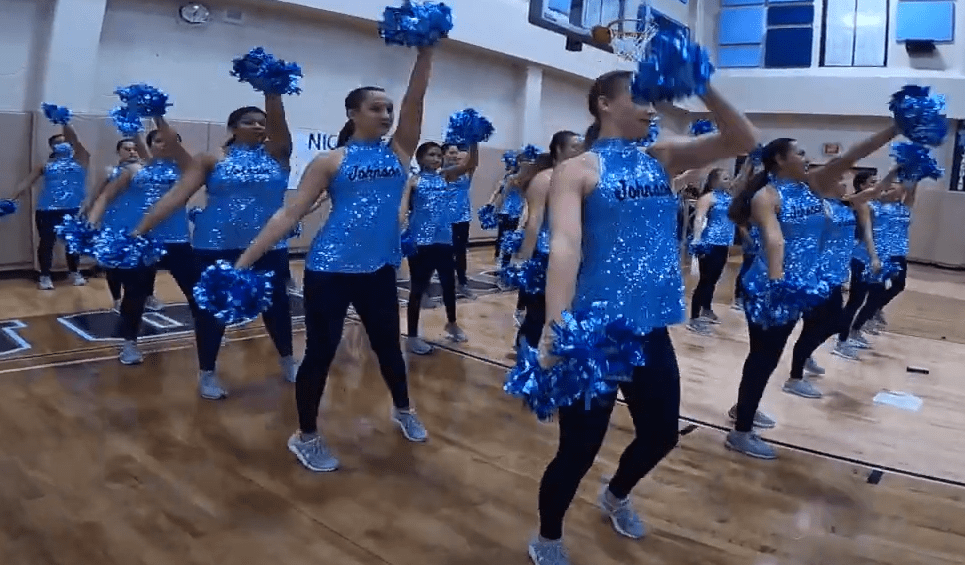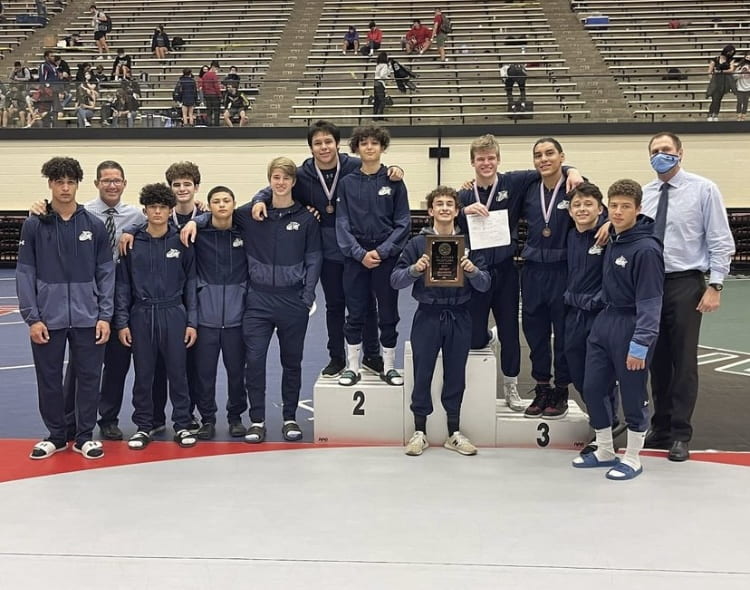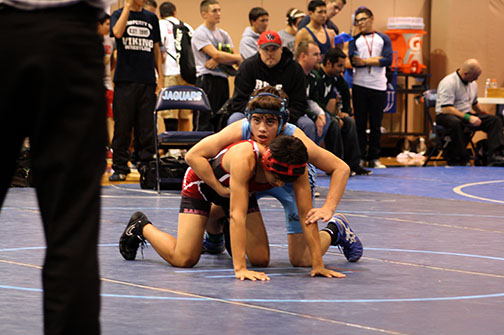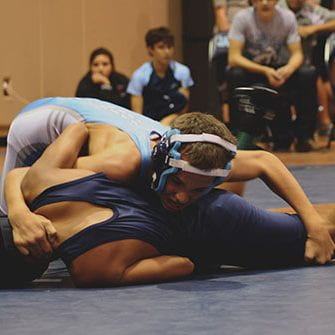
By Daisy Creager and Ivey McDaniel | Staff Writers
High school is difficult enough as is. The pressure students feel to make good grades, have a social life and be accepted by peers is only too familiar to the American teen. Lately though, athletes have been going out of their comfort zones and breaking stereotypical gender barriers that have separated girls and boys for many decades. For them, high school becomes an entirely new challenge; one pitting long-held values against what may amount to a lifelong passion. One such student is Ashley McCutchen: the only girl wrestler in Johnson’s history.
“I started this year, at the beginning of freshman year. My friend is doing wrestling at Reagan, and I figured that we could have meets together and it would be really fun. And my brothers are also in it, too,” she said.
Coaching McCutchen is physics teacher Leslie Salazar, who also got an early start in girl’s wrestling.
“I did wrestle in high school, for all four years I was there,” Salazar said. “My older brother was a wrestler and I remember seeing a girl on the team when I was in middle school and I thought, ‘I could do that’. So, I did.”
Naturally, defying convention brought a wealth of spectator commentary.
“It was definitely a challenge to get the guys on the team to take us seriously. Even the coach had never had girls on the team, so it was a learning experience for all. There were a couple incidents and rude comments, but for the most part, everyone just let us do what we wanted. Once the guys realized we were really committed, they eventually warmed up to us. It took a good year, though,” Salazar said.
McCutchen, too, is facing the difficulties of being accepted in a traditionally all-male activity.
“Well, it gets to be really difficult, because the guys- they don’t know what to say, and they don’t know how to act, and I couldn’t join any of their conversations because they didn’t know what to expect,” McCutchen said. “But now, they’ve warmed up to me. I will continue wrestling, and if someone wants to join the team, you need to be able to put up with harassment, because you’re a girl and they’re a guy.”
Needless to say, Salazar is having trouble recruiting.
“Of course, the more the better; the problem is finding girls that are willing and brave enough to put themselves out there to do it,” Salazar said.
Jackson Hartzog, a junior JV wrestler, has no problem with a girl-inclusive team; though he admits that his opinion is not shared by all.
“I don’t see any reason why [girls] shouldn’t be allowed on the team if they’re willing to put in the effort,” he said. “It varies, some [teammates] okay with it and some aren’t. If a guy or girl wants to be in a certain sport, they should be allowed to.”
A UIL rule bans girls from wrestling with boys, which makes practicing a challenge.
“Right now, I just wrestle with the girls,” Salazar said. “I am teaching them how to do the techniques, and they get more out of it- actually working with another girl- than they would if they were working with a boy.”
Salazar believes that the rule, though posing some inconvenience, is ultimately to the benefit of both boys and girls in a practice setting.
“Boys and girls are physically very different, and a lot of guys have problems with some of the positions they may get into with a girl,” she said.
Hartzog agrees that, although girls should be allowed to wrestle on the team, it is important to keep each with their own gender to avoid complications.
“It’s really kind of a bad situation. If you win, you look bad because you beat up a girl. If you lose, you look bad because you lost to a girl,” he said.
Despite her advocacy of breaking the norm, McCutchen remains content with wrestling only those of her own demographic.
“I think girls should be able to wrestle on a team, but with other girls, because with guys- because we’re, like, weaker and smaller- it makes wrestling with guys unfair, she said.
Sophomore Elijah Falcon, referred to as ‘Bubbles’ by friends because of his upbeat, enthusiastic personality, is the first guy at Johnson to participate in fall color guard.
“We had a guy in winter guard last year; then, he was gone, so it was really cool being able to have another guy,” junior Kelsey Edison said. “It adds a little bit of a different aspect to our color guard.”
An eager learner with a chipper disposition, Falcon warmed up to the team quickly.
“You would think that you would have different treatment, but in reality, there are guys in guards all over the country, and they get treated the same way as the other girls in it,” he said. “People enjoy me being around; it’s something different.”
After being a mascot in eighth grade in his hometown of Surprise, Arizona and playing flute on the marching band as a freshman, Falcon found that he had a heart for performing.
“You want attention, you want to be noticed. If you’re wearing a mascot suit, people are going to notice you. If you’re the only guy in a whole group of girls performing, people are going to notice you,” Falcon said.
With encouragement from friends and family, he began going to practices. Other students and instructors often remarked that Falcon seemed like a veteran of the team. Still, the decision to leave band for newcomer status in an entirely different group was anything but easy.
“I thought ‘I’m not sure if this is something I want to do’. One thing is, you really miss the people you use to be with. You definitely miss the people, more than you miss doing it and performing,” Falcon said.
However, he has now found a place on the team. Naturally, with his presence in mind, some adjustments had to be made to the formerly all-female group.
“It’s actually pretty weird, because usually we change on the buses and stuff, and now we have to be really cautious; he has to go to the front,” junior Jaclyn Jordan said. “In the ending movement, we have skirts, so his uniforms have to be altered-he has to wear pants. So it has changed a little bit, costume-wise, but as far as work, our director hasn’t changed anything. It’s still the same.”
Nevertheless, Falcon’s passion for color guard is undiminished by gender -related issues.
“If it’s something you enjoy doing, don’t let it get in the way. If you feel like you should be doing it, or you feel like it would be something you would enjoy, try it and if you like it then keep at it,” he said. “But you can’t say that you don’t like it if you haven’t tried. Either you try it, or you end up never trying it, and regret it.




